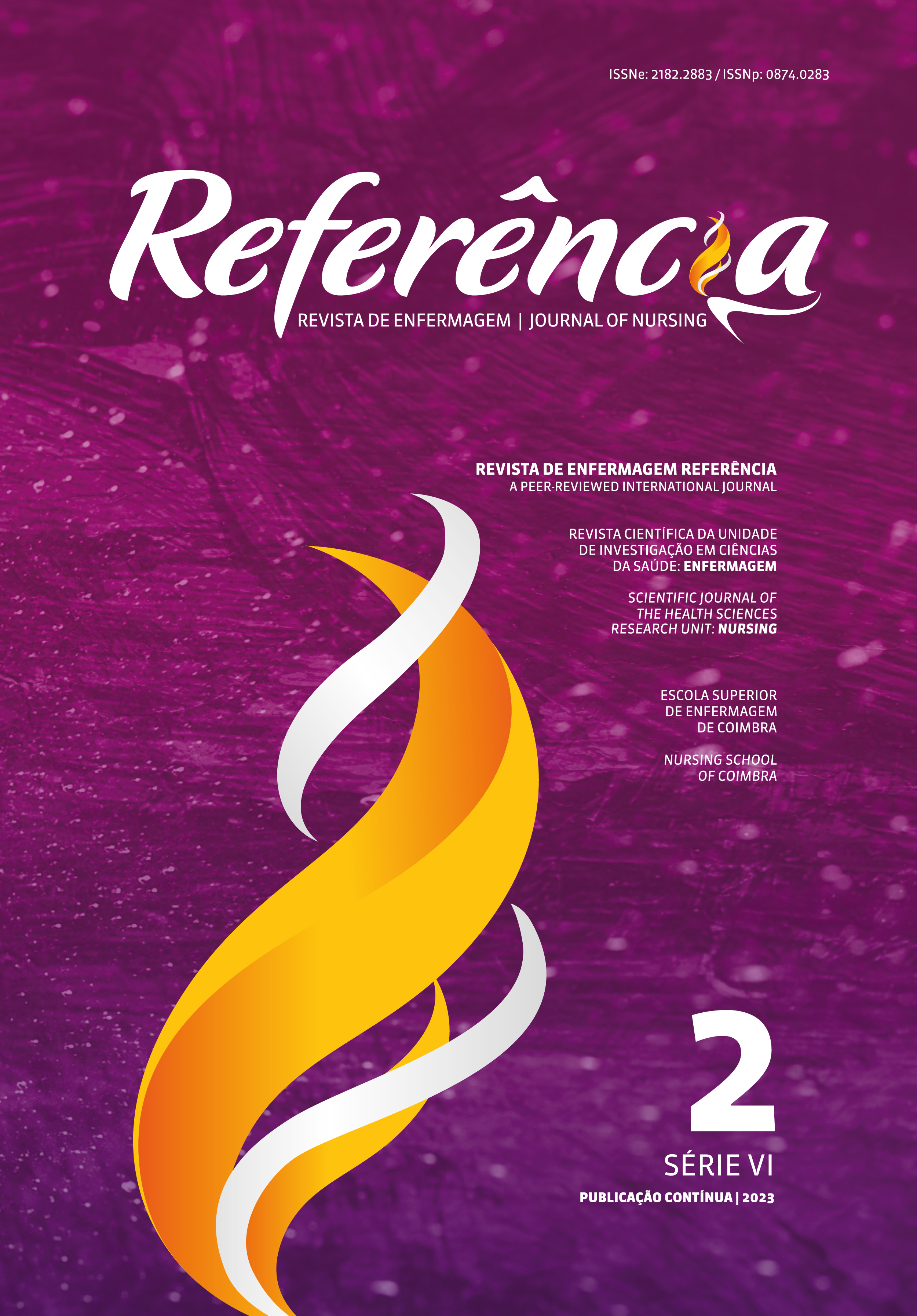Mobile applications to support type 2 diabetes self-management: patient experiences, needs, and preferences
DOI:
https://doi.org/10.12707/RVI23.11.29661Keywords:
diabetes mellitus, type 2, mobile applications, self-management, patient preferenceAbstract
Background: Mobile applications can be useful in diabetes self-management. Knowing the needs and preferences of users is essential for these tools to provide effective support in this process.
Objective: To learn about the experiences, identify needs, and explore the preferences of people with type 2 diabetes mellitus regarding mobile applications to support diabetes self-management.
Methodology: Qualitative descriptive study with 12 participants selected using the snowball sampling technique. Data was collected through semi-structured interviews and analyzed using the content analysis technique.
Results: Six categories emerged from the analysis: functions and technical characteristics, informative content, self-determination, emotional management, health professional, and facilitating factors. The results suggest poor digital skills, need for access to information, and preference for multifunctional and interactive applications.
Conclusion: Despite the limited use of health-related apps, people are interested and realize the benefit of using these tools to manage their diabetes.
Downloads
References
American Diabetes Association. (2022). Standards of medical care in diabetes: 2022. Diabetes Care, 45(Sup.1), s1-s2. https://diabetesjournals.org/care/issue/45/Supplement_1
Adu, M. D., Malabu, U. H., Callander, E. J., Malau-Aduli, A. E. O., & Malau-Aduli, B. S. (2018). Considerations for the development of mobile phone apps to support diabetes self-management: Systematic review. JMIR mHealth and uHealth, 6(6), e10115. https://doi.org/10.2196/10115
Aida, A., Svensson, T., Svensson, A., Chung, U., & Yamauchi, T. (2020). eHealth delivery of educational content using selected visual methods to improve health literacy on lifestyle-related diseases: Literature review. JMIR mHealth and uHealth, 8(12), e18316. https://doi.org/10.2196/18316
Baptista, S., Wadley, G., Bird, D., Oldenburg, B., & Speight, J. (2020). User experiences with a type 2 diabetes coaching app: Qualitative study. JMIR Diabetes, 5(3), e16692. https://doi.org/10.2196/16692
Bardin, L. (2009). Análise de conteúdo. Edições 70.
Böhm, A. K., Jensen, M. L., Sørensen, M. R., & Stargardt, T. (2020). Real-world evidence of user engagement with mobile health for diabetes management: Longitudinal observational study. JMIR mHealth and uHealth, 8(11), 1–18. https://doi.org/10.2196/22212
Byrne, G., Keogh, B., & Daly, L. (2022). Self-management support for older adults with chronic illness: Implications for nursing practice. British Journal of Nursing, 31(2), 86–94. https://doi.org/10.12968/bjon.2022.31.2.86
Center for Disease Control and Prevention. (2022). Diabetes. https://www.cdc.gov/diabetes/professional-info/index.html
Decreto-Lei n.o 83/2018 da Presidência do Conselho de Ministros . (2018). Diário da República: I série, n.o 202. https://diariodarepublica.pt/dr/detalhe/decreto-lei/83-2018-116734769
Fischer, F., & Kleen, S. (2021). Possibilities, problems, and perspectives of data collection by mobile apps in longitudinal epidemiological studies: Scoping review. Journal of Medical Internet Research, 23(1), e17691. https://doi.org/10.2196/17691
Kabeza, C., Harst, L., Schwarz, P., & Timpel, P. (2020). A qualitative study of users’ experiences after 3 months: The first Rwandan diabetes self-management smartphone application “Kir’App”. Therapeutic Advances in Endocrinology and Metabolism, 11, 1-12. https://doi.org/10.1177/2042018820914510
Kim, H., & Xie, B. (2017). Health literacy in the ehealth era: A systematic review of the literature. Patient Education and Counseling, 100(6), 1073–1082. https://doi.org/10.1016/j.pec.2017.01.015
Klemme, I., Wrona, K. J., Jong, I. M., Dockweiler, C., Aschentrup, L., & Albrecht, J. (2023). Integration of the vision of people with diabetes Into the development process to improve self-management via diabetes apps: Qualitative interview study. JMIR Diabetes, 8, e38474. https://doi.org/10.2196/38474
Krall, J. S., Childs, B., & Mehrotra, N. (2023). Mobile applications to support diabetes self-management education: Patiente experiences and provider perspectives. Journal of Diabetes Science and Technology, 17(5), 1206–1211. https://doi.org/10.1177/19322968231174037
Larbi, D., Randine, P., Årsand, E., Antypas, K., Bradway, M., & Gabarron, E. (2020). Methods and evaluation criteria for apps and digital interventions for diabetes self-management: Systematic review. Journal of Medical Internet Research, 22(7), 1–13. https://doi.org/10.2196/18480
Lauffenburger, J. C., Barlev, R. A., Sears, E. S., Keller, P. A., McDonnell, M. E., Yom-Tov, E., Fontanet, C. P., Hanken, K., Haff, N., & Choudhry, N. K. (2021). Preferences for mhealth technology and text messaging communication in patients with type 2 diabetes: Qualitative interview study. Journal of Medical Internet Research, 23(6), e25958. https://doi.org/10.2196/25958
Lee, E., Yun, J., Cha, S., Lim, S., Lee, J., Ahn, Y., Yoon, K., & Ko, S. (2021). Personalized type 2 diabetes management using a mobile application integrated with electronic medical records: An ongoing randomized controlled trial. International Journal of Environmental Research and Public Health, 18(10), 5300. https://doi.org/10.3390/ijerph18105300
Shindel, A., & Lue, T. (2021). Sexual dysfunction in diabetes. https://www.ncbi.nlm.nih.gov/books/NBK279101/
Sociedade Portuguesa de Diabetologia. (2019). Diabetes: Factos e números: O ano de 2016, 2017 e 2018: Relatório anual do observatório nacional da diabetes. https://www.spd.pt/images/uplo ads/20210304-200808/DF&N-2019_Final.pdf
Tong, A., Sainsbury, P., & Craig, J. (2007). Consolidated criteria for reporting qualitative research (COREQ): A 32-item checklist for interviews and focus groups. International Journal for Quality in Health Care, 19(6), 349–357. https://doi.org/10.1093/intqhc/mzm042
Weber, M., & Hassan, S. (2021). Prevention of type 2 diabetes. Endocrinology and Metabolism Clinics of North America, 50(3), 387–400. https://doi.org/10.1016/j.ecl.2021.05.003






















